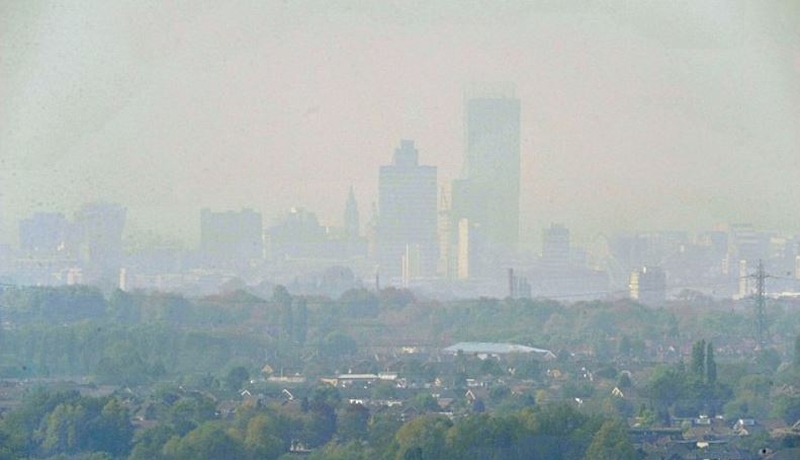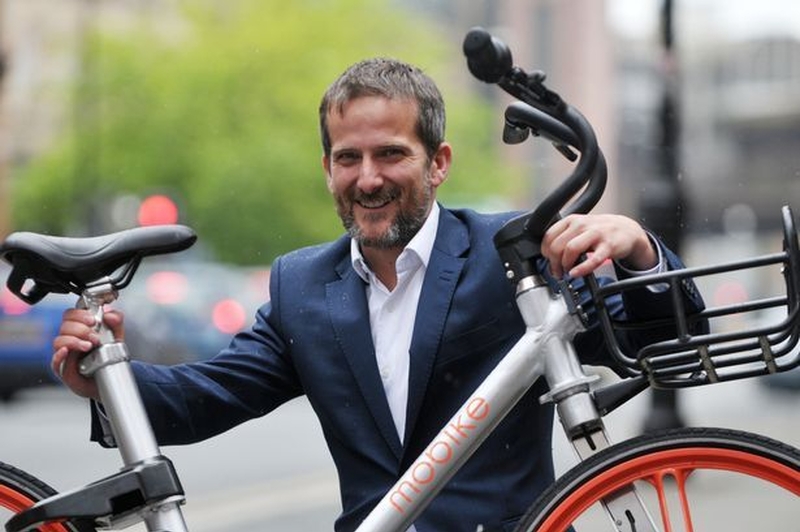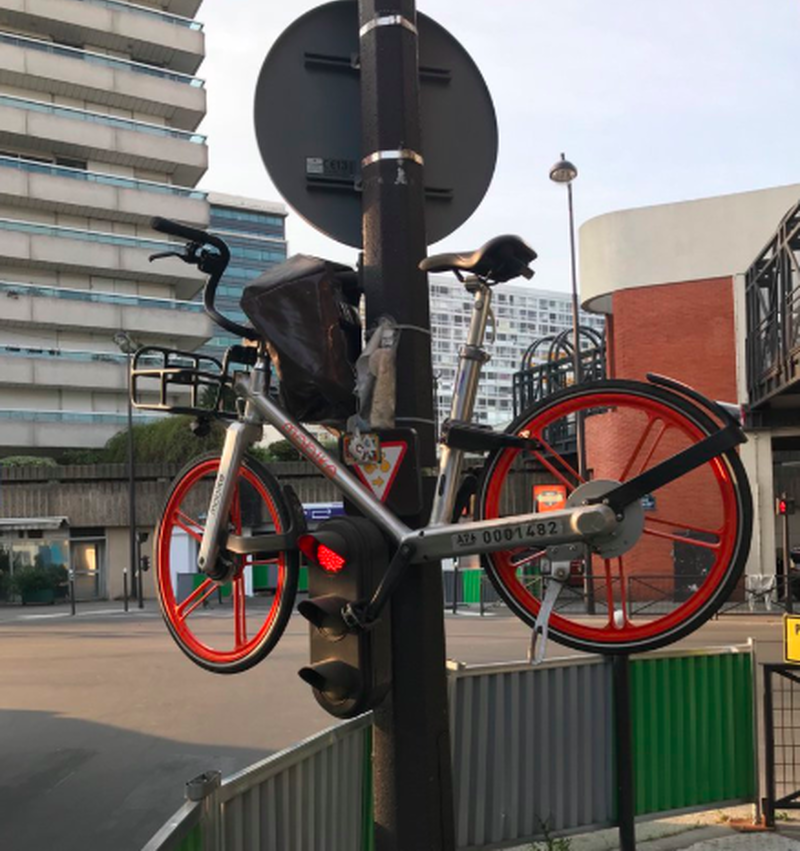Jonathan Schofield on the underlying alienation in UK cities
MOBIKE, the Chinese-owned dockless bike hire firm, have put Manchester on a warning that they may leave the city due to the amount of vandalism and theft. Newcastle is also threatened with a Mobike farewell.
Company spokesman Steve Milton told The Guardian last week that “This is not PR. The losses are not sustainable.” Apparently 10% of the 2,000 Manchester Mobikes vanish or are vandalised every month. This seems a lot, that’s 200 bikes up trees, in canals and strung up on lampposts every 30 days.
Whatever the truth of the matter, if Mobike leave it won’t look good. Some commentators have bemoaned it as a terrible stain on the city’s reputation, indicative of a Manchester falling apart at the seams.
But to consider this a Manchester problem alone is to miss the point. This is a British issue.
A typical reaction came from BBC North West Tonight, which rang me up wondering whether the news might put tourists off.
The answer to that is no. Wearing my tour guiding hat, I’ve never once had a weekend breaker stating that availability of a bike hire scheme on a city’s streets is the reason they choose to visit.
“Shall we go to Manchester this weekend? Apparently there’s loads to see and do.”
“Is there a dockless bike hire scheme?”
“Not any more apparently.”
“In that case, how could you ever suggest such a thing? We’re finished.”
That simply doesn’t happen. Still, it’s not good to lose something that has been an asset, especially to bad behaviour and especially as there have not been similar threats by Mobike to leave cities in any other country in which they operate. The Chinese company operates across the Far East and also in other parts of Europe, North America and Australasia, but it’s only in Britain that they appear to be feeling the anti-social heat.
To understand why this might be the case, especially in Manchester, is a matter of demographics and history. One of the quotes I overuse to explain the city was written in, of all places, Esquire magazine a decade or so ago by Jim McClellan, following a comprehensive city tour and visit. He wrote: ‘Manchester’s size makes the social processes more visible’.

Take a trip up any tall building in the city centre and you can see how the inner suburbs of Manchester and Salford crowd round. Manchester and Salford are both in the bottom ten local UK councils in terms of deprivation. Both cities have some of the worst health and education indices in the country. The evident boom in the city centre - awash with cranes and sometimes real but often faux ‘luxury apartments’ - lies a few minutes walk from severe poverty in Lower Broughton, Collyhurst, Cheetham Hill, Beswick, Miles Platting and so on.
This doughnut of wealth and poverty has hardly improved in decades in terms of better social outcomes. The lack of decent, stable jobs has been a problem since the great extinction of much of Manchester and Salford's inner city manufacturing in the seventies and eighties.
Poverty and poor education is often the basis for higher crime stats. There is no revelation to this. Mobike's Steve Milton talks of ‘no-go’ areas. ‘Maybe in Manchester,’ he says, ‘we see that more because these sorts of areas are closer to the city centre.’
But to consider this a Manchester problem alone is to miss the point. This is a British issue.

Aside from a time in the middle part of the 20th century, when two World Wars had focused the mind and there was perhaps more of a common purpose, Britain has always been an unruly country; big on personal freedoms and big on abusing them. To prove this I could quote passages from the nineteenth century or direct quotes from overseas guests on my tours in the 21st century about litter and binge-drinking.
The class system has always underscored this with competing resentments provoking an ‘it’s not for us attitude’. Too frequently I have conducted tours of school kids from Manchester’s suburbs who have literally said those words when being taken into Manchester Art Gallery or John Rylands Library. Worse they have said things such as ‘we didn’t think we were allowed in’.
You hear the same thing in Liverpool, Leeds and across the country. For many, if you’ve lived your life just getting by without too many of the commodities you see being advertised everywhere then, given the personal freedoms and traditions in the UK, compared to say parts of the Far East, loads of easy-to-pinch bikes on city streets might seem too much of a temptation.

This alienation underlines the reason so many Mobikes have been damaged or stolen, which is sad, and not a little ironic, given that cycling has been promoted through various agencies and the government as a good tool with which to boost social inclusion. What the Mobike situation shows is that nationally, and not just in Manchester, we still have a long way to go.
If Mobike does pack itself into its own panniers and leaves then, while it will hardly damage tourism, it underlines Britain’s age-old and seemingly intractable problems of haves and have-nots. And of course, if companies like Mobike do despair of us, as usual the removal of such services will hit those cities with the greatest gulfs between rich and poor, rather than well-heeled Oxford or Central London.















